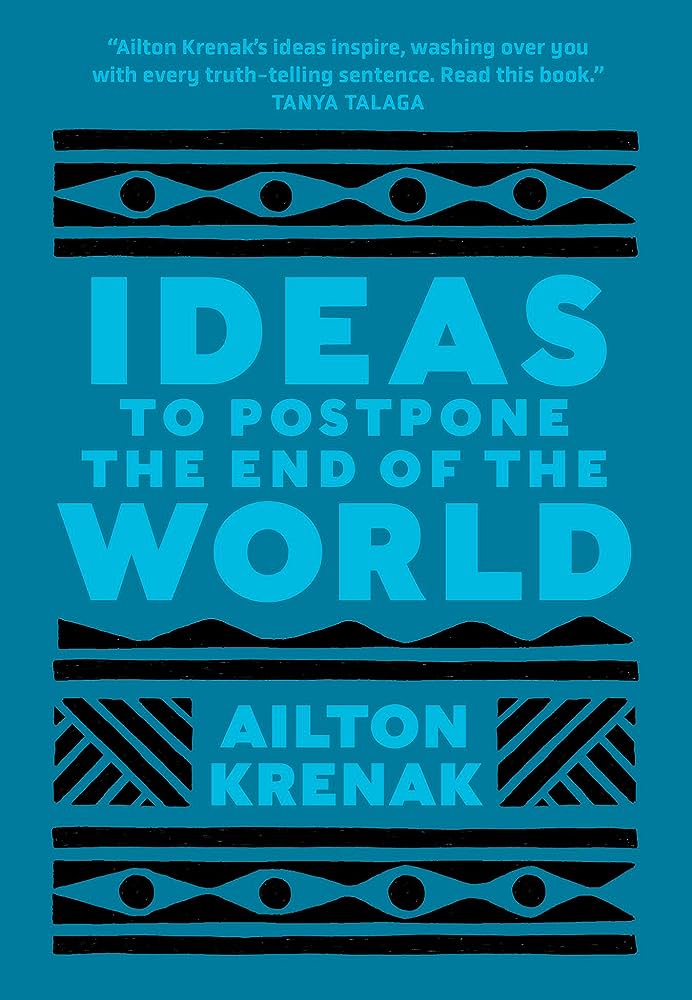
Ideas to postpone the end of the world
Ailton Krenak’s Ideas to postpone the end of the world (translated from Portuguese by Anthony Doyle) is a slim volume bursting with important ideas. The title, as Krenak says, is a provocation: the name he spontaneously gave a lecture when he was asked to speak at the University of Brasilia. Krenak himself is a philosopher and socio-environmental activist for Indigenous rights from the Krenak homelands along the Doce River.
The book is non-fiction, bringing together various inputs Krenak has given elsewhere, for instance in lectures and interviews. It begins in April 2020, in the early days of the pandemic and the concomitant feelings of a radically uncertain future. Krenak is condemning of Jair Bolsonaro and the necropolitics of his Covid-policy, the price of which was disproportionately paid by Brazil’s already marginalized communities. He describes the colonially rooted problem of the glorification of ‘progress’, which means that those who don’t subscribe to the ideas encompassed by it are violently rejected from the system that deems it desirable. Specifically, the rejection of progress on such terms by Indigenous peoples leads to their violent marginalization by a society premised on the desirability of capitalist ‘growth’ – which mostly entails recklessly exploiting the earth for its resources.
As such, Krenak speaks to the problems of making a ‘we’ equally inhabitable for us – human and non-human – all, and points to the importance of what he calls, with Boaventura de Sousa Santos, knowledge ecology. That is, he suggests that we should be sensitive to the enormous variety of knowledges of the world, and that none of these is singularly complete. Integral to his thinking through of these forms of colonial and epistemic violence is the relationship to rivers, forests, and landscapes. He gives cause to reflect critically on sustainability as a marketing gimmick used to serve greenwashing in an industry still premised on exploitative capitalism. And he speaks heartbreakingly about the poisoning by a burst tailings dam of the Watu, the stretch of the Doce River that his people have lived together with for generations.
As someone whose knowledge of colonialism’s legacies in the territories of today’s Brazil is very limited, I read this book in one sitting, captivated by all the things it was teaching me. It doesn’t form a narrative whole, but rather a collection of, as the title says, ideas. Many of these ideas resonate with other contexts affected by colonialism, but the reasons to read the book are in its place-specific details and nuances.

